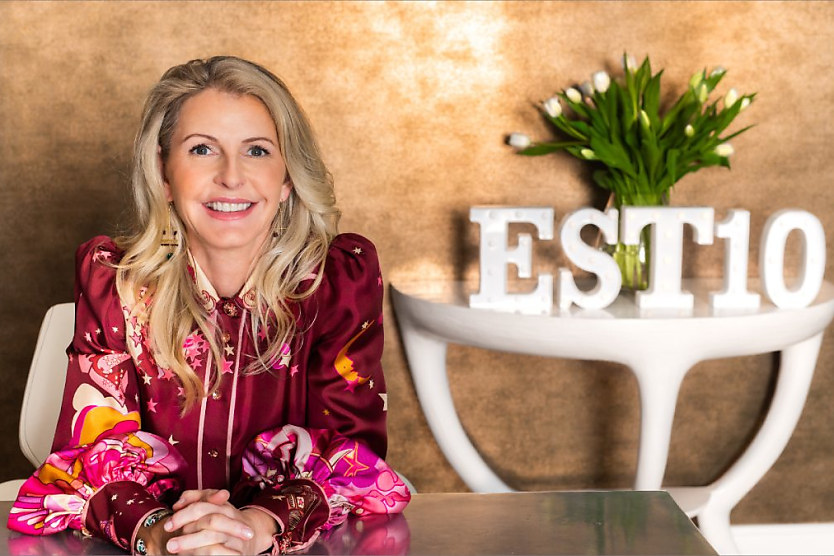The case for hiring Baby Boomers
SHARE THIS ARTICLE

It’s hard to believe in today’s enlightened post-pandemic world, the last frontier of bias remains – ageism, writes Roxanne Calder.
Globally, 50 per cent of us are ageists against older people, and in Australia, if you are a Baby Boomer, 20 per cent of you, aged 65 and over, have experienced workplace age discrimination in the last two years. Thirty-three per cent of those aged 55–64 are also likely to experience age discrimination.
So, with an exasperated last breath on the subject, here is why you should hire Baby Boomers:
Older workers are on the rise
Life expectancy is increasing, and so too is the retirement age. With it, the proportion of the total employed in Australia, 55 years and above, is increasing.
In 1980, it was 10.5 per cent; in 2020, it rose to 19.4 per cent, and the 2024 projection is 25 per cent. It is a monumental talent pool in size and experience.
Our skills shortage remains
The skills shortage is a global issue, and Australia is up there with the best… so to speak.
With the second-highest skills shortage in the developed world and our unemployment rate of 3.6 per cent, the talent shortage will be with us for some time. Instead, tap into the available talent, right under your nose, the skilled and oh-so-experienced in life and work, Baby Boomers.
Diversity is your competitive advantage
Workforce diversity is a strength for any organisation.
For the first time in our work history, we have five generations working together, presenting an extraordinary opportunity for businesses. We know decisions get sidetracked by biases, but you can achieve more diverse perspectives by changing the make-up of your decision-making teams.
Mental health
When it comes to mental health, our Baby Boomers come out trumps.
Research from the states shows Gen Z are more likely to be diagnosed with anxiety than Baby Boomers and are two-and-a-half times more likely to have substance problems.
For anxiety and depression, Millennials and Gen X have the highest diagnosis rates, Gen Z the least, at 18 per cent, and Baby Boomers the second-least likely, at 20 per cent.
Unfortunately, mental health awareness wasn’t as prevalent in earlier years, making it less likely to be diagnosed. Yet today, most of us still believe there is a stigma around mental health, from 55 per cent of Gen Z to Millennials and Gen X at 59 per cent and 68 per cent and Baby Boomers at 71 per cent.
So, whether it was a harder discussion topic before than in our current times, let’s not minimise the mental health strength of our Baby Boomers. Their previous tough-times experience has built resilience, faith, and fortitude.
Buddyships
With workplace mental health issues, buddyships could prove vital for your organisation. Buddyships match older workers with younger employees and are more relaxed than mentoring programs. The learning and advice sharing is free from pressure and other’s eyes and ears.
The relationship is also mutually beneficial. If you are concerned about Baby Boomers being digitally bereft (false, by the way), what better way for two generations to assist each other than with a skills exchange? Swap business etiquette training for social media tips.
Digital whatever
Gen Z might be digital natives, but that doesn’t necessarily make them tech-smarter than Baby Boomers. Credit where it is due. Baby Boomers were born into a world of black and white TV, mail with stamps, radio or newspaper news, milk delivered to your home in glass bottles, and cheques, not credit cards or electronic wallets. No cameras to assist with parking or seatbelts, for that matter.
They adapted and adopted to change like no other generation. Wi-Fi, Bluetooth, machine learning; online everything has required adaptability, curiosity, and a continuous learning mindset. Oh, and guess who our earliest computer-age innovators were. Baby Boomers, Bill Gates, and Steve Jobs. Take a digital bow, Baby Boomers.
Disappearing values
Baby Boomers were raised in an environment where family and societal structures were the norm. Politeness, respect, and loyalty are the residual values and marry well with organisational expectations, needs and goals. Keeping the best of the “old” and incorporating it with our current assists in navigating the problematic maps of our present times.
Our Baby Boomers have weathered recessions, wars, political upheavals and worse. If you are a younger manager, executive, business owner, or anyone for that matter, why wouldn’t you seek counsel from previous experiences?
I am not a Baby Boomer. I am Gen X. Baby Boomers were my life, school, and work teachers. I have witnessed the patience, hard work, expertise, resilience, adaptability, acquired knowledge, and shared learnings of my parents, grandparents, teachers, previous bosses, and managers. How fortunate am I.
By Roxanne Calder, author of “Employable – 7 Attributes to Assuring Your Working Future”, founder and managing director of EST10.
